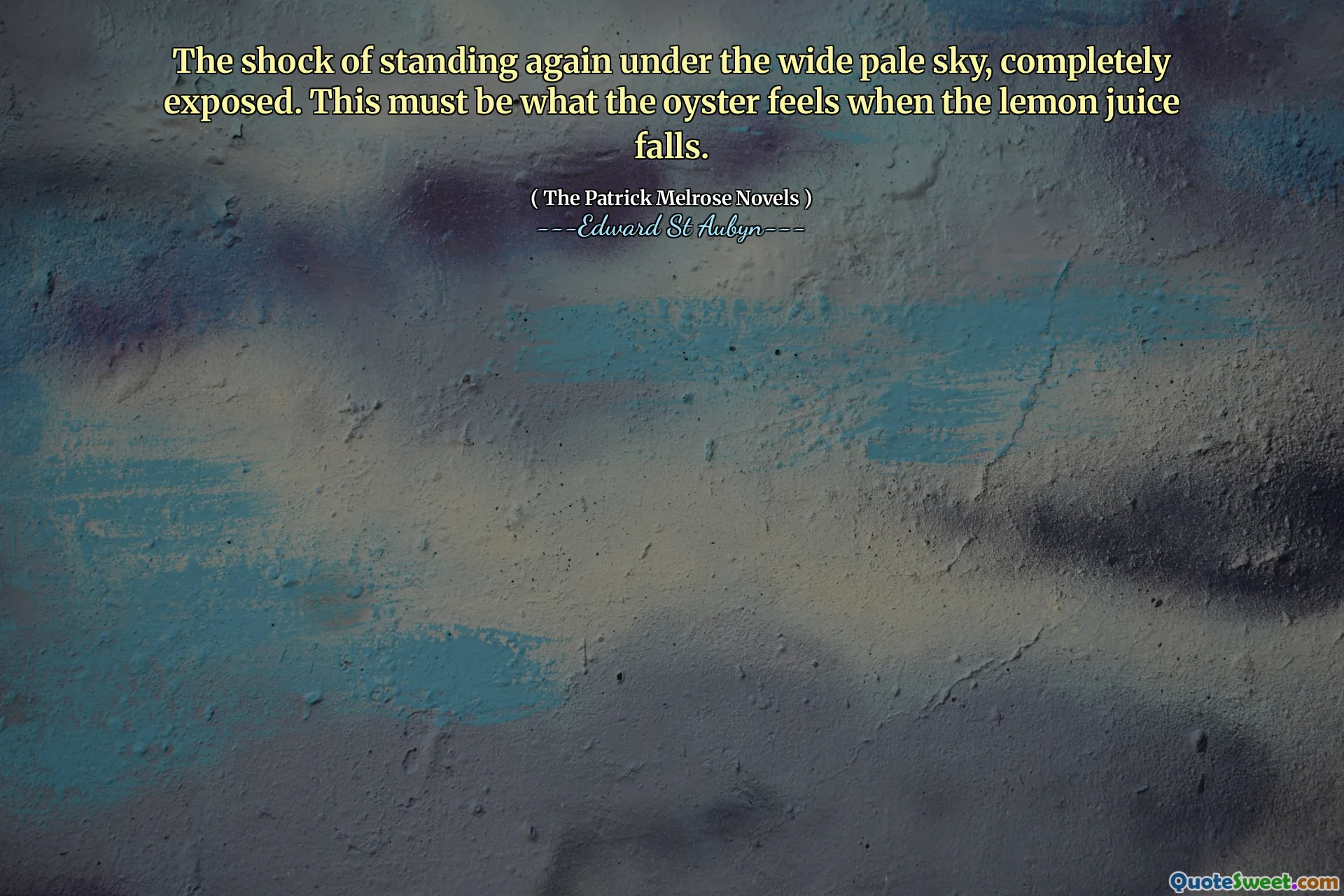
The shock of standing again under the wide pale sky, completely exposed. This must be what the oyster feels when the lemon juice falls.
This quote evocatively captures the vulnerability felt when confronting exposure and vulnerability in a raw, almost instinctual manner. The imagery of standing beneath a vast, pale sky brings to mind a moment of solitude and openness, where one’s defenses are stripped away, leaving only the vulnerable core of existence. The comparison to an oyster experiencing lemon juice emphasizes a sudden, cleansing, yet painful awakening. Oysters are often associated with concealment and protection beneath their shells, so the exposure to lemon juice—a metaphor for an unexpected attack or revelation—speaks to the shock and discomfort of truly revealing oneself or facing reality. The quote invites reflection on the nature of vulnerability: how exposing ourselves to the world or to truth can bring about feelings of discomfort but also clarity. That moment, while painful, may also serve as a form of cleansing or awakening, much like the lemon juice disinfects and brings to surface the hidden oyster’s secrets. This duality of experiencing pain through exposure but ultimately growing or transforming from it resonates deeply across various aspects of life, whether emotional, psychological, or even physical. The widespread sky symbolically hints at the universe's vast indifference to individual pain, emphasizing how personal exposure can often feel monumental and isolating. Yet, from this vulnerability, there is potential for renewal, insight, and genuine authenticity. In the context of Edward St Aubyn’s works, it might also reflect the complex layers of human experience—facing raw honesty about oneself and embracing the discomfort it entails to find growth and truth.








